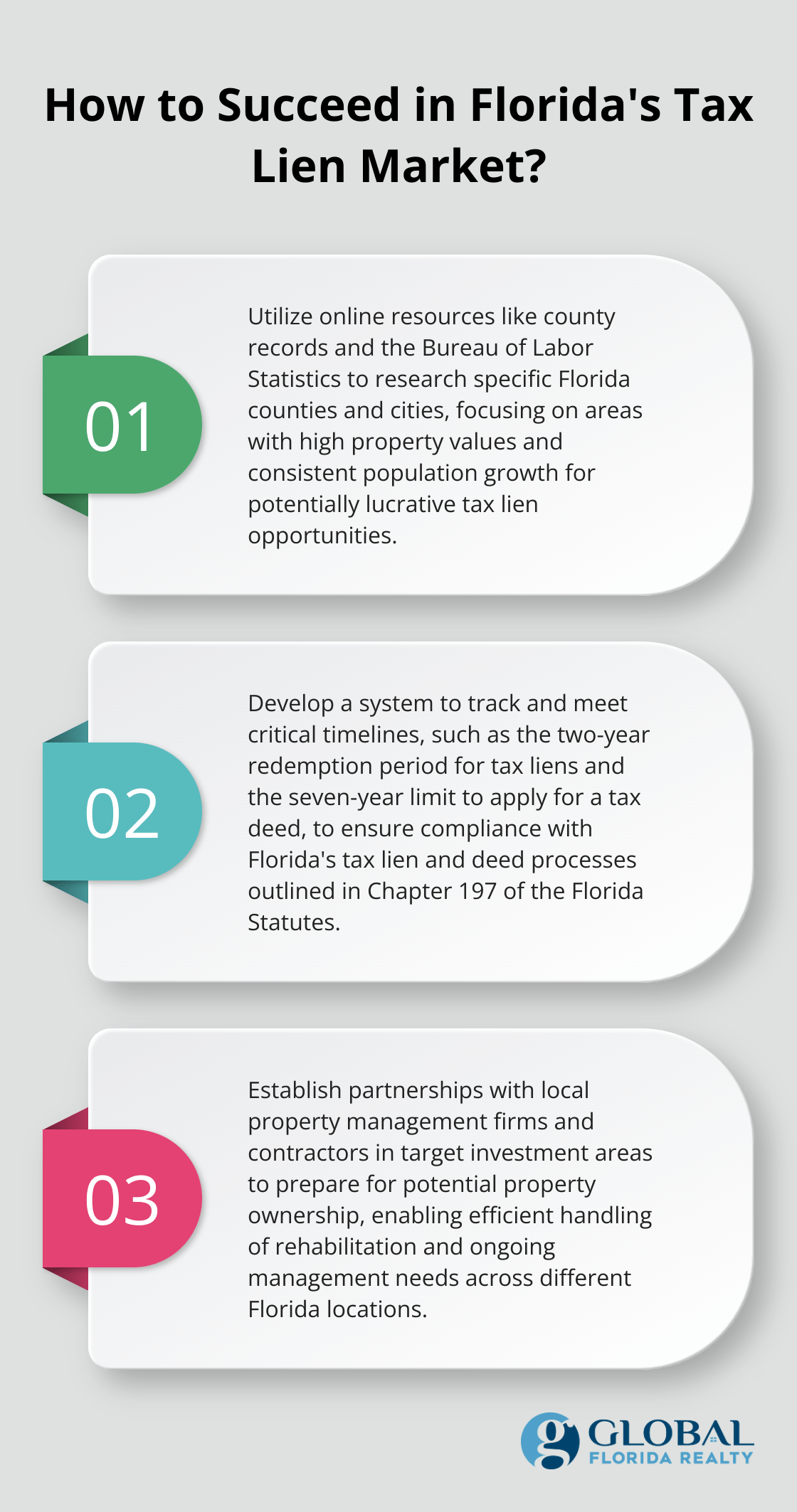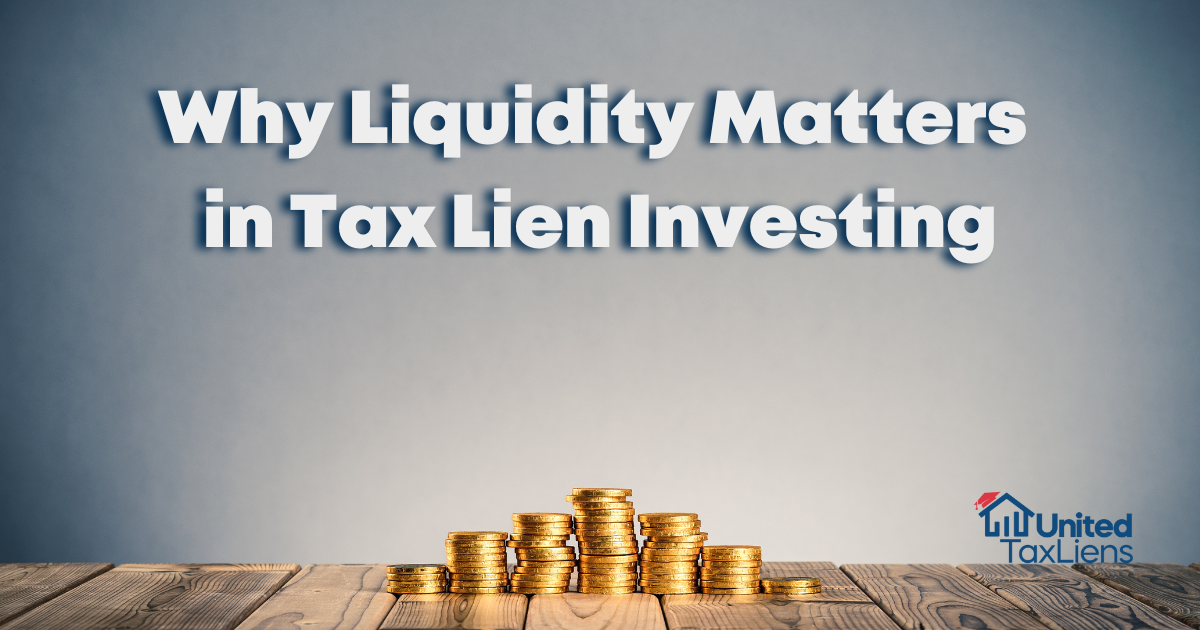All Categories
Featured
Table of Contents

There is a 3 year redemption period for most buildings sold at the tax obligation lien sale and throughout that time, the home still belongs to the evaluated owner. Really couple of home tax obligation liens in fact go to deed.
The rate of interest on tax obligations bought at the tax lien sale is nine percentage factors above the price cut rate paid to the Federal Reserve Bank on September 1st. The price on your certification will certainly remain the exact same for as lengthy as you hold that certificate. The price of return for certificates offered in 2024 will certainly be fourteen percent.
:max_bytes(150000):strip_icc()/taxliencertificate.asp-final-b2b6b823202f45b9ab56efc51304ed44.png)
The certifications will certainly be kept in the treasurer's workplace for safekeeping unless otherwise advised. If the tax obligations for occurring years become overdue, you will be informed around July and offered the chance to back the tax obligations to the certificates that you hold. You will certainly obtain the very same rate of interest on succeeding taxes as on the original certificate.
You will not be refunded any kind of premiums. If the certificate is in your ownership you will be notified to return it to our office. Upon invoice of the certificate, you will certainly receive a redemption check. The redemption duration is three years from the date of the initial tax sale. You will certainly get a 1099 kind revealing the amount of redemption interest paid to you, and a duplicate will also be sent out to the internal revenue service.
Spending in tax obligation liens and acts has the potential to be rather lucrative. It is also feasible to invest in tax liens and acts with much less funding than might be needed for various other financial investments such as rental residential or commercial properties. Thus, this is just one of the a lot more popular financial investment options for holders of Self-Directed Individual Retirement Account LLC and Solo 401(k) programs.
Online Tax Lien Investing
Tax obligation liens might be levied on any type of kind of building, from raw land to homes to industrial homes. The guidelines bordering the kind of lien and just how such liens are released and redeemed differs by state and by area. There are 2 major classes, tax liens and tax actions. A tax obligation lien is provided right away once they building proprietor has actually fallen short to pay their tax obligations.

Such liens are then marketed to the public. A financier purchases the lien, hence offering the town with the needed tax income, and afterwards deserves to the residential or commercial property. If the homeowner pays their taxes, the capitalist generally gets passion which can be in the series of 12-18%.
If the residential property is not redeemed, the capitalist might confiscate on the residential property. Tax liens and deeds supply the possibility for generous roi, potentially with reduced quantities of resources. While there are particular danger elements, they are relatively reduced. Tax lien investing is concentrated on the collection of interest and penalties (where available) for the tax obligation financial obligation.
The procedure for investing differs by state and by area. A lot of liens and actions are cost public auction, with some public auctions taking area in-person at a court, and some occurring online. You will normally require to sign up in advance for such auctions and might be required to put a deposit to participate.
Tax Lien Investment
In some jurisdictions, unsold liens or acts may be readily available available for sale "over the counter" from the area staff's workplace or site after a public auction has actually been finished. Prior to taking part in a public auction, you will certainly wish to execute study to determine those residential properties you may want and make sure there are no complications such as various other liens that might need to be settled or troubles with the residential or commercial property itself that may create problems if you were to take over possession.

This period is implied to provide the property owner a chance to resolve their financial obligation with the taxing authority. With a lien, redemption indicates that your IRA or 401(k) will obtain a payday, with rate of interest and any applicable fines being paid.
Tax lien and deed investing is a location where checkbook control is a must. You need to be able to issue funds directly on brief notice, both for a deposit which should be signed up in the plan entity name, and if you are the winning bidder. With a Checkbook Individual Retirement Account LLC or Solo 401(k), you can directly make such repayments from your plan account right away or 3rd party fees.
If you make a down payment and are not successful in bidding process at public auction, the down payment can just be returned to the strategy account without trouble. The numerous days refining hold-up that comes with working directly via a self-directed IRA custodian simply does not operate in this space. When purchasing tax obligation liens and deeds, you have to guarantee that all activities are carried out under the umbrella of your strategy.
All costs related to tax obligation lien investing need to originate from the strategy account straight, as all earnings produced must be transferred to the plan account. tax liens investments. We are usually asked if the strategy can pay for the account owner to attend a tax obligation lien training course, and advise against that. Also if your investing tasks will certainly be 100% with your plan and not involve any type of individual investing in tax liens, the IRS can consider this self-dealing
Is Buying Tax Liens A Good Investment
This would certainly also hold true of obtaining a building via a tax obligation deed and afterwards holding that property as a service. If your approach will certainly involve obtaining residential or commercial properties just to reverse and resell those properties with or without rehab that might be deemed a supplier activity. If implemented often, this would certainly subject the individual retirement account or Solo 401(k) to UBIT.
Just like any kind of investment, there is danger connected with spending in tax liens and acts. Investors should have the economic experience to gauge and understand the risks, perform the essential diligence, and appropriately carry out such investments in conformity internal revenue service rules. Safeguard Advisors, LLC is not an investment expert or service provider, and does not suggest any type of certain financial investment.

The information over is instructional in nature, and is not intended to be, neither must it be taken as providing tax obligation, legal or investment suggestions.
High Yielding Investments In Tax Lien Certificates
Lien enforced on residential property by regulation to secure repayment of taxes Pima Area, Arizona delinquent real estate tax checklist for public auction by the Region Treasurer A tax obligation lien is a lien which is enforced upon a building by law in order to secure the payment of taxes. A tax lien may be enforced for the purpose of gathering delinquent tax obligations which are owed on real residential or commercial property or personal residential property, or it might be imposed as a result of a failure to pay revenue tax obligations or it may be enforced as an outcome of a failing to pay other taxes.
Internal Profits Code area 6321 gives: Sec. 6321. LIEN FOR TAX OBLIGATIONS. If anyone accountable to pay any type of tax overlooks or declines to pay the very same after demand, the quantity (including any type of passion, additional quantity, enhancement to tax, or assessable penalty, along with any type of expenses that may accumulate additionally thereto) will be a lien for the United States upon all property and legal rights to residential or commercial property, whether real or individual, belonging to such person.
Tax Lien Investing Illinois

Division of the Treasury). Usually, the "individual reliant pay any kind of tax" described in area 6321 has to pay the tax within ten days of the written notice and demand. If the taxpayer fails to pay the tax within the ten-day period, the tax lien occurs automatically (i.e., by procedure of legislation), and is reliable retroactively to (i.e., occurs at) the day of the evaluation, although the ten-day duration necessarily runs out after the assessment day.
A government tax obligation lien developing by regulation as described over is legitimate versus the taxpayer with no additional activity by the government. The general policy is that where 2 or more creditors have completing liens versus the exact same building, the financial institution whose lien was perfected at the earlier time takes concern over the creditor whose lien was perfected at a later time (there are exceptions to this rule).
Latest Posts
Tax Liens Listing
Tax Lien Investing For Beginners
Government Real Estate Tax Sales